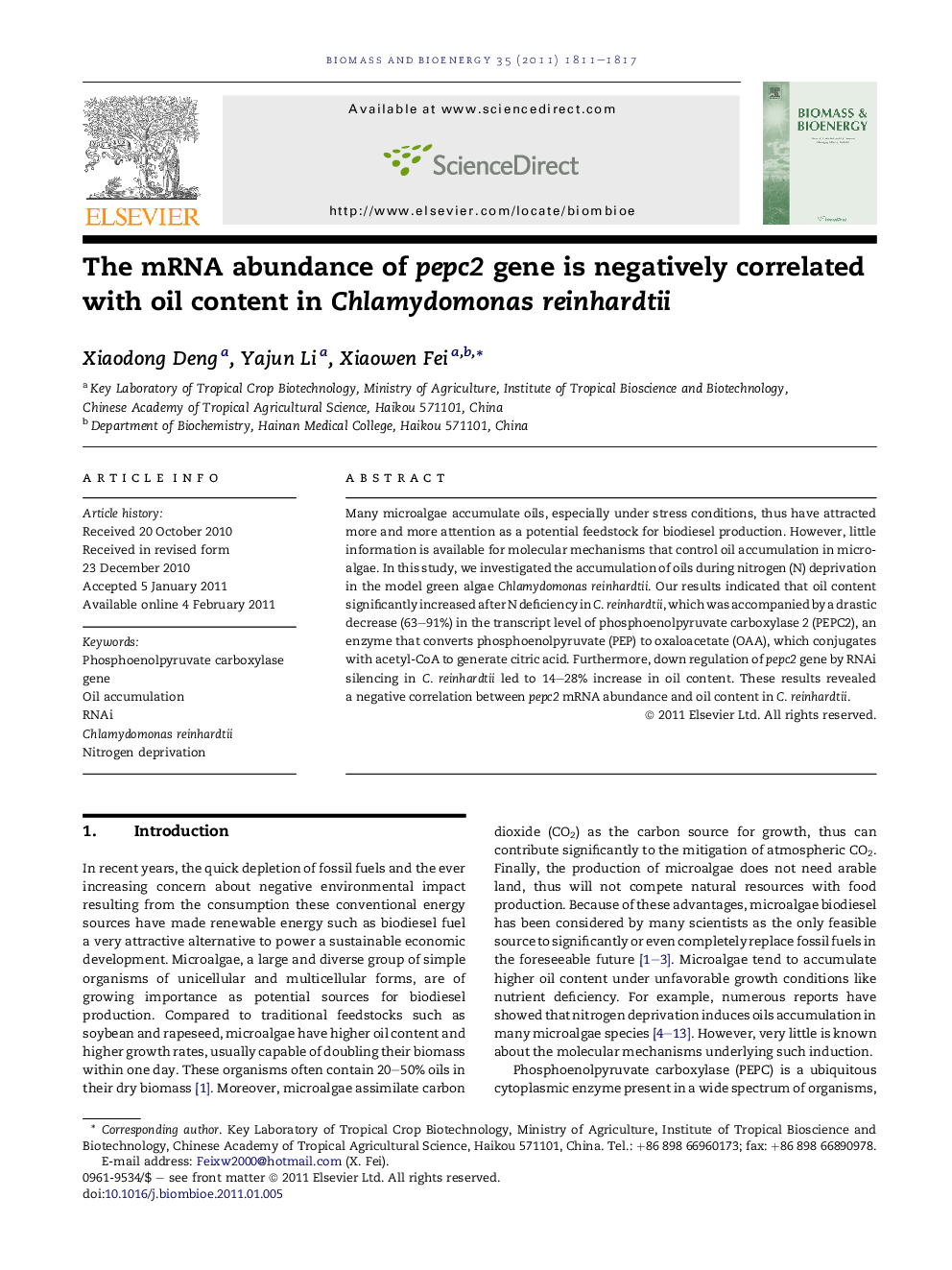| Article ID | Journal | Published Year | Pages | File Type |
|---|---|---|---|---|
| 677726 | Biomass and Bioenergy | 2011 | 7 Pages |
Many microalgae accumulate oils, especially under stress conditions, thus have attracted more and more attention as a potential feedstock for biodiesel production. However, little information is available for molecular mechanisms that control oil accumulation in microalgae. In this study, we investigated the accumulation of oils during nitrogen (N) deprivation in the model green algae Chlamydomonas reinhardtii. Our results indicated that oil content significantly increased after N deficiency in C. reinhardtii, which was accompanied by a drastic decrease (63–91%) in the transcript level of phosphoenolpyruvate carboxylase 2 (PEPC2), an enzyme that converts phosphoenolpyruvate (PEP) to oxaloacetate (OAA), which conjugates with acetyl-CoA to generate citric acid. Furthermore, down regulation of pepc2 gene by RNAi silencing in C. reinhardtii led to 14–28% increase in oil content. These results revealed a negative correlation between pepc2 mRNA abundance and oil content in C. reinhardtii.
► Deprivation of the nitrogen in green algae Chlamydomonas reinharadtii cultivation resulted oil content significantly increased. ► The transcript level of pepc2 gene was decreased accompanied with oil accumulation. ► Down regulation of pepc2 gene by RNAi silencing led to 14–28% increase in oil content.
